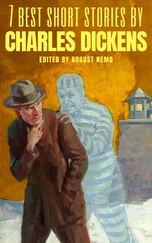Diane Williams - Angels in Action - Stories to Inspire
Здесь есть возможность читать онлайн «Diane Williams - Angels in Action - Stories to Inspire» весь текст электронной книги совершенно бесплатно (целиком полную версию без сокращений). В некоторых случаях можно слушать аудио, скачать через торрент в формате fb2 и присутствует краткое содержание. Год выпуска: 2014, ISBN: 2014, Издательство: CreateSpace Publishing, Жанр: Проза, на английском языке. Описание произведения, (предисловие) а так же отзывы посетителей доступны на портале библиотеки ЛибКат.
- Название:Angels in Action: Stories to Inspire
- Автор:
- Издательство:CreateSpace Publishing
- Жанр:
- Год:2014
- ISBN:9781482605648
- Рейтинг книги:5 / 5. Голосов: 1
-
Избранное:Добавить в избранное
- Отзывы:
-
Ваша оценка:
- 100
- 1
- 2
- 3
- 4
- 5
Angels in Action: Stories to Inspire: краткое содержание, описание и аннотация
Предлагаем к чтению аннотацию, описание, краткое содержание или предисловие (зависит от того, что написал сам автор книги «Angels in Action: Stories to Inspire»). Если вы не нашли необходимую информацию о книге — напишите в комментариях, мы постараемся отыскать её.
Angels in Action: Stories to Inspire — читать онлайн бесплатно полную книгу (весь текст) целиком
Ниже представлен текст книги, разбитый по страницам. Система сохранения места последней прочитанной страницы, позволяет с удобством читать онлайн бесплатно книгу «Angels in Action: Stories to Inspire», без необходимости каждый раз заново искать на чём Вы остановились. Поставьте закладку, и сможете в любой момент перейти на страницу, на которой закончили чтение.
Интервал:
Закладка:
I had already earned a bachelor’s degree in social work, and I knew I did not want to pursue that avenue. I wanted to go to school and study journalism, but I had three obstacles blocking me: I was living with a disability, forced to utilize a walker and sometimes a wheelchair for mobility; I was more than double the age of the traditional college student, so I was worried about relating to other students; and then there was the actual work itself; I questioned my ability to complete assignments in the allotted time frame. Because of the limited movement in my hands, every task took me a great deal of time, and I was unable to write lengthy content; thus, note taking and typing papers would be a great challenge.
In my experience, one of the hardest things I have had to learn was to accept using a wheelchair. Going to school with immobile limbs and painful joints is difficult. I was constantly trying to protect my body as best as I could so no one accidently bumped into me, or bumped me into anything as they pushed me around. I remember how often times I wanted to quit, but the kindness of the people spurned me on. The professors said they would help me as long as I told them what I needed. The students assured me they were there for me and that all I had to do was call on them. I registered for two classes which required me to attend class three days a week. On my first day of class, I asked my professor’s permission to record his lectures. He agreed, and my first obstacle of note taking was immediately conquered. The professor passed out the syllabus while reciting the assignments: two exams plus a final, a quiz every week, and a lengthy research project. I questioned my ability to keep pace. It usually took me four times as long to complete a task compared to a mobile person. I felt like crying, but I managed to maintain composure.
The professor asked me why I was in the wheelchair. I told him my story and he asked me to speak to the class about my mental, physical, and social experience, as well as how I have been working these things altogether.
After the hour-and-a-half lecture, I was totally wiped out and felt inextricably overwhelmed. I began to second-guess my decision to enter a graduate program. After class, my teacher assured me that if there was anything I needed, I could just ask. Many of the students offered their support as well. I thought about their kindness and generous offers, and I placed my eyes back on my goal, maintaining the sentiment “Life is a journey and not a destination.” And though I was exhausted, I went home, took a nap, and then began studying.
The other students were young, active, and often amazed me. I loved their energy and passion for the classes. Most astounding was their warm reception of me. I needed aid with so many things: opening the doors, taking my book from my backpack and putting it on the desk, opening my book, taking notes, typing papers—to be more explicit; I needed help with everything you do with your arms and legs. They offered their assistance regularly. Being very prideful, I asked for support as little as possible, and when I did ask for help, it was with great hesitation. But having limited mobility in the limbs made my options bleak; ask to receive, or not ask and do without. One thing that impressed me with my classmates was that they never forced, begged, or demanded I take their help. They offered and left it alone. That made me feel less self-conscious and it motivated me to keep going.
At the onset, I wanted to quit almost every day. But those students motivated me to keep showing up. I took Access Services, a public transportation service for seniors and people living with disabilities. Most days the vans were late picking me up. I was either very early or late to class, almost never on time. I waited many minutes and sometimes the minutes spilled over to hours. The students would pass by me and offer me a ride, and I would always politely and respectfully decline. One afternoon the bus was so late that day soon became night. One of the young men in my class offered to drop me off, and I accepted the offer. He assisted me into the car and I gave him my address.
He said, “My goodness, you live one block away from me. I pass this street every day going to school!” He offered to transport me to school for the entire semester.
The kindness continued. Students went to the library with me and assisted me in using the computers, and removing books off the shelves for me. Some nights I would go home thinking of these young people, their kindness and generosity. Uncontrollable tears would fall from my eyes. In each of my classes, I started a study group. Again, the students surprised me by joining the groups. I told them that this was the method I used in undergraduate school and it produced phenomenal results. I studied because I had made a commitment, and I could not renege on it; that was one of the requirements for the group. Some of the students would even ask me to have subgroups, and we would meet in my home.
I would tell the students how thankful and appreciative I was for their generous support. They waved it off and said, “No problem.” Some of them would say I inspired them because they did not think they would be able to go to school in a wheelchair; the challenge looked too overwhelming. At times, when they did not want to do their assignments or complained about their situations, they thought of me and would say to themselves, “If Ms. Williams can show up, so can I.” Did I mention how great they were for my self-esteem?
I had one night class. A student would always volunteer to escort me to my ride. Usually, it was a female, but this night it was an energetic young man. On the way to the elevator he talked about his project while I, neglecting to engage in the conversation, was quietly praying about my need to use the restroom. He paused a moment, glanced at me and asked if I was OK. I nodded. “If you need or want anything, I am here for you,” he said.
I had to go to the ladies room, but he was a young male student and I was a middle-aged woman. I could not ask him for help in the restroom. I pondered and weighed the advantages and disadvantages of waiting until I got home. The reality was that to try and wait until I was home was a dumb idea; after all, my ride’s time frame was unpredictable. I really had to get over myself and release my pride. After all, how would a prideful lady be in soiled pants? Passing up the bathroom was no longer an option. I prayed and thought about the student’s statement, “Whatever you need, just ask. I am here for you.”
I stopped thinking and praying, and instead started talking. I told him my dilemma and he said, “Sure.” And just like that all my anxiety had gone. I used the restroom with his help. Boy, how I can get in my own way. I thanked the young man. He shrugged his shoulders and warmly replied, “No problem. I told you if you need anything I am here for you.” I often wondered if that young man knew how profoundly grateful I was for his act of kindness.
Although I had a relationship with God, there were times when I doubted Him and put my pride first. However, after I prayed, I believed He placed this young man with me on that evening.
Reflection: Go within and ACCEPT …therein lies your power. Learning to accept frees us to live in a spirit of gratitude, which blesses the giver and the receiver.
When Mom Prays
Watching my daughters grow into flourishing young ladies has been one of my greatest rewards in life. At times, I believed their journey toward independence was going to be stifled. When I was thirty-seven, rheumatoid arthritis attacked my joints with a vengeance, leaving me practically immobilized.
In addition to mitigating my physical mobility, it sent my husband packing and diminished my economic power. As an unemployed divorced parent of two teenage daughters, I felt like Job—everything I had was gone.
Читать дальшеИнтервал:
Закладка:
Похожие книги на «Angels in Action: Stories to Inspire»
Представляем Вашему вниманию похожие книги на «Angels in Action: Stories to Inspire» списком для выбора. Мы отобрали схожую по названию и смыслу литературу в надежде предоставить читателям больше вариантов отыскать новые, интересные, ещё непрочитанные произведения.
Обсуждение, отзывы о книге «Angels in Action: Stories to Inspire» и просто собственные мнения читателей. Оставьте ваши комментарии, напишите, что Вы думаете о произведении, его смысле или главных героях. Укажите что конкретно понравилось, а что нет, и почему Вы так считаете.












